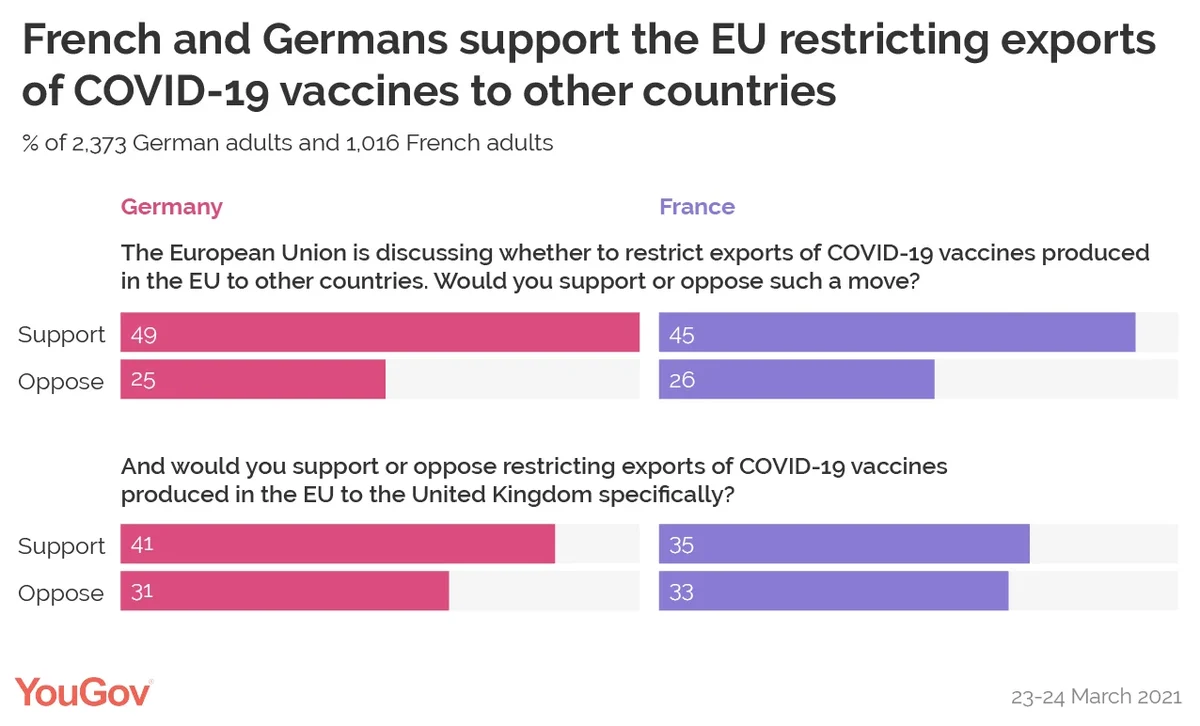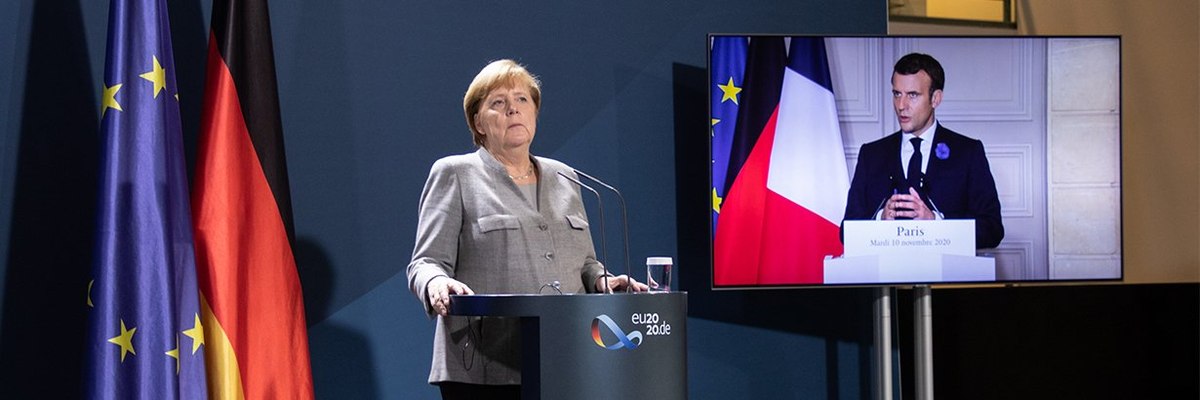Supporters of Angela Merkel’s party are especially enthusiastic
On Thursday, the European Commission is set to hold a video conference on potential new legislation, unveiled today, that will make restrict exports of COVID-19 vaccines produced in the European Union. Such a move is likely to affect Britain in particular, which is the largest recipient of vaccines made on the continent by far.
A new YouGov survey conducted in the two most important EU member states – France and Germany – shows that the public there strongly support restricting exports of vaccines. In Germany the principle is backed by 49%, almost twice the number who are opposed (25%). Support is particularly strong those who voted for Angela Merkel’s party, the CDU/CSU, at 66%.

The numbers are largely the same in France, with 45% supporting restrictions and 26% opposed.
As noted above, the UK will be hardest hit by any export restrictions, and the European Commission’s rhetoric in recent months on COVID vaccines have often appeared politically motivated against the UK.
Asked whether they support restricting vaccines to the UK in particular, support is lower but still outnumbers opposition. Four in ten Germans (41%) support blocking vaccine shipments to Britain, compared to 31% who are opposed. Again, support is particularly strong among CDU/CSU voters (53%), but also among the liberal FDP (58%).
The French are more reluctant to block vaccines going to Britain specifically. There is a three way split – 35% support such a move, 33% oppose, and 32% are unsure.
Most people in France and Germany think that pharmaceutical companies have been behaving unfairly
At the heart of the current crisis is the EU’s dispute with the pharmaceutical company AstraZeneca. The body is outraged that the firm has failed to deliver as many vaccines as promised, while simultaneously providing a healthy supply to the UK.
The firm disputes accusations of foul play, saying that differences are because of the UK moving more quickly on the matter.
Nevertheless, the dispute has left a strong sense among Europeans that pharmaceutical companies had been behaving unfairly in their distribution of the vaccine. A YouGov survey in mid-February showed that two thirds of French people (67%) felt this way, as did 54% of Germans.
In Britain, by contrast, the opposite is true. Only 14% think vaccine manufacturers have been unfair, compared to 48% who feel they have been fair.









